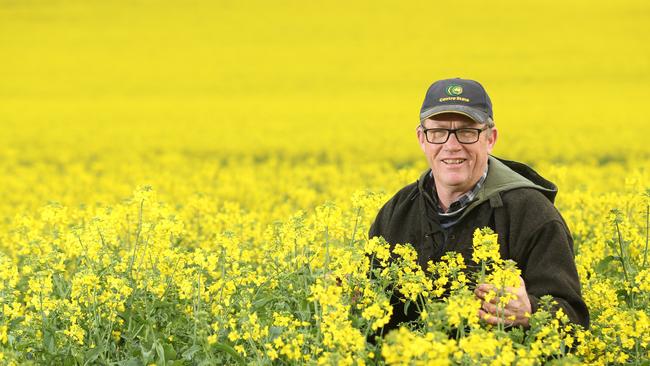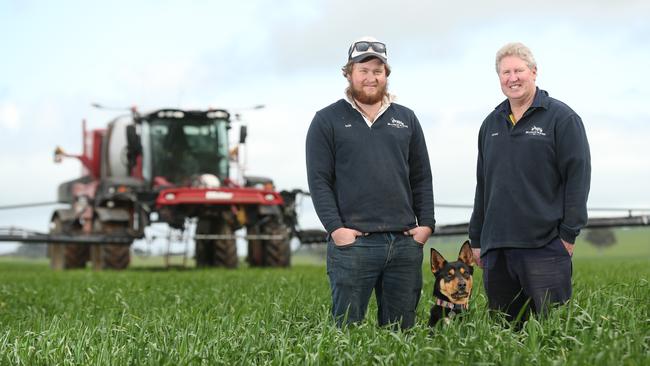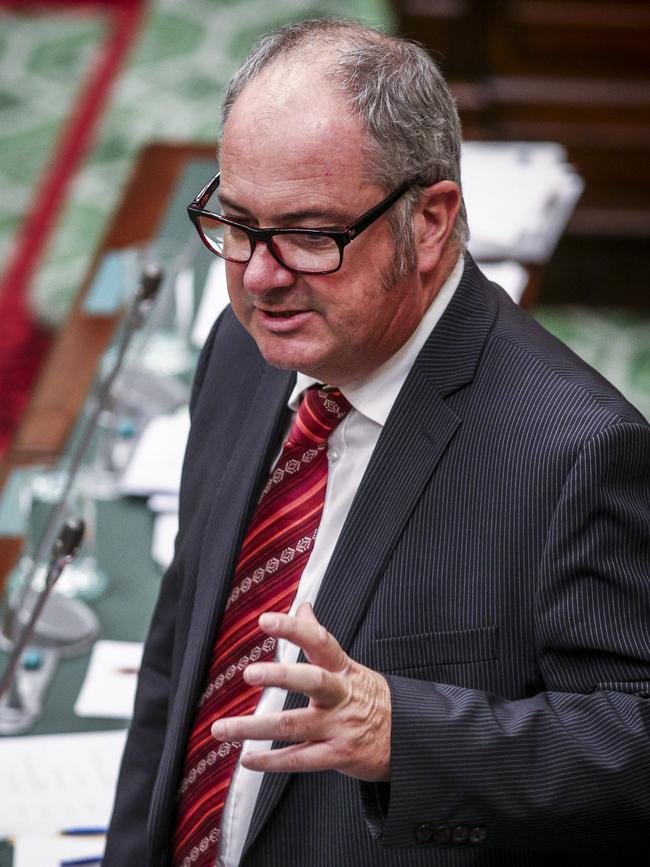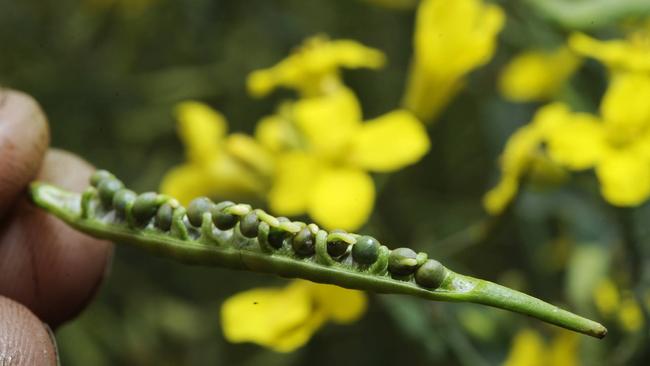Growers welcome GM move, but opposition remains
Grain growers in SA are celebrating the long-awaited end to SA’s ban on genetically modified crops. But supporters of the ban are not planning to let it go easily.
The state’s grain growers are poised to be able grow genetically-modified crops from next season, with the Liberal Government hoping to lift the current moratorium by the end of the year, bringing to a close more than a decade-long ban on croppers accessing the technology.
But, there has already been a backlash to the plan, with the Greens launching a petition to maintain the moratorium and the Labor Party saying its preferred option is to wait until an Upper House Select Committee, which is examining the pros and cons of lifting the moratorium, hands down its findings. The wine industry has also raised concerns about what lifting the moratorium could mean for its markets.
At the moment, the only GM crop that would be widely sown in South Australia is Roundup Ready canola. This is a canola variety that has been modified using gene technology to tolerate glyphosate, an active ingredient in Roundup agricultural herbicides.

Farmers
Riverton farmer Steve Ball, who is also a director of the grain grower representative group Grain Producers Australia, says while lifting the moratorium would not affect his farming system next year, he was excited about the possibilities it presented.
“I won’t sow Roundup Ready canola, because I don’t want to push the use of glyphosate too hard in the system,’ he said.
“But there are other GM crops in the pipeline that I’d be interested in growing, including a new canola with a higher omega 3 content than salmon that’s been developed by the CSIRO. GM safflower also could offer the opportunity to add another crop into the rotation.”
Mr Ball said lifting the moratorium should also have benefits for farmers interstate, as well as SA.
“There should be flow-on effects, hopefully the cost of seed for WA farmers will go down. In the past, they couldn’t send seed through SA, they had to go right around (into the Northern Territory), which would have added to the cost.”
Mr Ball believes lifting the moratorium will help attract research dollars to SA.
“I just think it’s good that science and economics have won out,” he said.
Stockport farmer Mark Branson said the travels he went on through a Nuffield scholarship — a program which promotes excellence in agricultural production — more than 10 years ago convinced him of the safety and worth of GM technology.
“I’m just shocked at how long the moratorium has been in place in South Australia,” he said.
“I’ve been looking forward to trialling Roundup Ready canola for years, but I see it as just one part of a package of weed control that we can use on-farm.
“When I visited Canada in 2005 — through the Nuffield scholarship — I saw how the better growers were using Roundup Ready canola, but just as a tool for weed control, they weren’t relying on it.
“Since I undertook the Nuffield scholarship, I never had a worry with the technology. I believe in science, and as long as there are checks and balances in place, I’m comfortable with new technology.”

Eyre Peninsula farmer Heather Baldock, who farms near Kimba and is former SA Rural Women’s Award winner, ran workshops on GM technology across South Australia more than a decade ago, featuring experts from a range of fields.
She said the news the moratorium was set to be lifted in SA was exciting, particularly after years of discussion.
“We crop in a lower rainfall area and I believe GM technology offers great potential,” she said.
“We’ve had an increase in frost in recent years, so varieties bred for frost tolerance would be very welcome, or varieties bred for heat tolerance, particularly with the hot, dry springs we’ve been experiencing.”
Mrs Baldock said the technology could also offer the opportunity to reduce chemical use.
“You just need to look at the cotton industry to see the potential. Since GM cotton was introduced to Australia, the industry has reduced its chemical use by 85 per cent.”
Scientists
Associate Professor Matthew Tucker is an ARC Future Fellow at the University of Adelaide and said lifting the moratorium would provide a much-needed boost to SA growers, researchers and agriculture-related industries.
“It will provide growers with access to technologies that have been available interstate and internationally for over 10 years,” he said.
“It will also stimulate further research and investment in the GM space for our universities, providing opportunities for new jobs and new discoveries. Until now, testing GM crops that might benefit SA growers has been carried out interstate. Lifting the moratorium will provide an opportunity to safely test and develop new crop varieties in SA under local conditions, also ensuring the economic benefits remain in our state.”
Former chief executive of the Australian Centre for Plant Functional Genomics Professor Peter Langridge said the moratorium presented a major hurdle to the work the organisation was doing out of the University of Adelaide’s Waite Campus.
“We had to employ one person full-time, simply to manage the regulatory requirements involved in running a small trial at Glenthorne (in Adelaide’s south),” he said.
“Then there was also the problem of developing a technology that had no clear pathway to delivery. The level of analysis needed to bring a new variety to market, it would need to be grown at 20 sites at a minimum and up to 100 sites in large-scale trials, and we simply couldn’t see how we could ever afford that scale of analysis.”
Prof Langridge said it was disappointing that the technology’s safety was still being questioned, considering there had been more than 30 years of production and consumption, and it now accounted for many millions of hectares of the world’s crops.

Opponents
Former Agriculture Minister Leon Bignell, who has been a vocal opponent to lifting the moratorium, likened lifting the ban to letting a genie out of the bottle.
Mr Bignell said one of South Australia’s strengths was being able to promote itself one of the few places in the world that is phylloxera, fruit-fly and GM-free.
“People keep mentioning the potential loss of $33m over 14 years — that’s $2.35m a year. Our food and wine industry is worth $20 billion a year,” he said.
“So, in that same period SA food producers may have made much more money on their sales because they promoted their produce as coming from a GM free state.”
South Australian Wine Industry Association chief executive Brian Smedley said the organisation would prefer to see the moratorium remain in place.
In its submission to the review of the GM moratorium, the association said its position was based on key issues raised by its members including a potential negative impact on the Australian wine industry’s reputation in international markets; potential for additional complexity and cost to the traceability and labelling requirements within the wine industry’s major export markets and the risks for potential movement of genetic material to cause unintended cross-contamination.
“For the South Australian wine industry, there is no current benefit in the State Government decision to lift the GM moratorium,” Mr Smedley said.
“Currently, the Australian wine industry is not permitted to use genetically modified material, either vines or microorganisms, in its production processes. This is because there are no materials, additives or processing aides used in the production of wine that are approved and licenced by the Commonwealth Office of the Gene Technology Regulator for commercial use in Australia. For GM to have a role in wine production in the future, consumer reaction is important to understand and consider before any specific direction is taken.”
Anti-GM lobby group Gene Ethics director Bob Phelps said the present Select Committee inquiry should be allowed to run its course and report to the parliament before any proposed changes are made to the moratorium.
“Keeping Kangaroo Island GM-free so it can continue producing GM-free products to earn premiums is clear proof of tangible GM-free benefits,” he said.
“Exempting an island from GM canola so it can reap the benefits of GM-free cropping also confirms that GM poses contamination threats to neighbours and supply chains.
“That’s why Tasmania’s Liberal Government announced last week that their island will remain GM-free until 2029.”

Industry
Australian Seed Federation general manager Osman Mewett said the South Australian GM moratorium restricted growth and innovation in the state’s agricultural sector.
“It denied South Australian farmers access to innovative breeding technologies and new crops both now and in the future, and banned the transport of GM seed across the state,” he said.
“The GM seed transport ban had significant negative implications for the Australian seed industry. It resulted in increased cost to seed producers and long delays resulting from having to use other transportation measures to divert genetically modified seed around South Australia.”
CropLife Australia chief executive Matthew Cossey said with the demands on farming ever-increasing, policies based on facts, science and independent analysis had never been more crucial.
“GM crops are not just beneficial for farmers, they attract great environmental benefits too,” he said.
“Adoption of GM crops has already saved 183 million hectares of land from cultivation and is responsible for savings in CO2 emissions of 27 billion kg — the equivalent of removing 90 per cent of passenger cars registered in Australia from the road for one year.”
A spokesman from the state’s bulk grain handler Viterra said the organisation would be working closely with grower customers and industry stakeholders to understand their needs with GM canola next season.
“Our network is designed, and has a proven track record, of receiving and storing various commodities and grades in discreet segregations,” they said.
“Last harvest we provided 69 different segregations, which are based on commodity, variety and quality specifications. Our current handling and quality management expertise and processes are evidence that we are well positioned to meet the market requirements of handling and segregating both GM and non-GM commodities.”
